
When a company like Nvidia invests heavily in the Industrial Internet of Things market like it has with the introduction of the Jetson brand of embedded processors, it turns a lot of people's heads. But will the company have the same type of impact it has had on industrial automation that it has on the datacenter universe by offering endless amounts of GPU horsepower to tackle the inferencing, machine language and computer vision applications installed on assembly lines? The smart money says eventually but it will take a while.
Nvidia has tried to demonstrate its commitment to the industrial embedded market and one of its goals is to revolutionize edge processing tasks for Artificial Intelligence in factories to make assembly lines more productive through improved quality control, predictive maintenance, autonomous vehicle operation and visual inspection among other things. Some industry watchers say generative AI is now gaining momentum in the industrial automation space.
But can you just imagine how Nvidia's overtures are going over with the people who operate assembly lines? Anecdotal evidence supports the theory that manufacturing technology adoption for industrial users occurs at a much slower pace than it does for datacenter users. Factory tech personnel eschew pie-in-the-sky productivity promises that leading-edge technology offers because they place more weight on safety, security, reliability and 24-hour uptime. New technology is often perceived as unnecessarily disruptive in a manufacturing environment, and it poses risk to the continuous flow of operations because it introduces challenges.
A deeper dive into the innovative technology that IIOT providers are promising for factories reveals some of the end-user benefits that may stir demand. Perhaps a small handful of industries will adopt the latest and greatest as soon as they are available, but every environment is different and so actual results may vary.
Diese Geschichte stammt aus der September 2024-Ausgabe von Circuit Cellar.
Starten Sie Ihre 7-tägige kostenlose Testversion von Magzter GOLD, um auf Tausende kuratierte Premium-Storys sowie über 8.000 Zeitschriften und Zeitungen zuzugreifen.
Bereits Abonnent ? Anmelden
Diese Geschichte stammt aus der September 2024-Ausgabe von Circuit Cellar.
Starten Sie Ihre 7-tägige kostenlose Testversion von Magzter GOLD, um auf Tausende kuratierte Premium-Storys sowie über 8.000 Zeitschriften und Zeitungen zuzugreifen.
Bereits Abonnent? Anmelden
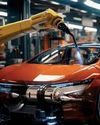
New TI MCUs Enable Edge AI and Industry-Leading Real-Time Control to Advance Efficiency, Safety, and Sustainability
Texas Instruments (TI) introduced two new series of real-time microcontrollers that deliver advancements to help engineers achieve more intelligent and secure processing in automotive and industrial applications.
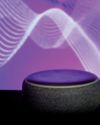
Using Amazon Alexa to Control Custom IoT Gadgets
In part two of his article, Brian describes integrating custom IoT gadgets with Amazon Echo using emulation to receive spoken alarms. In part one, he used emulation and Arduino Cloud services as a middleman.
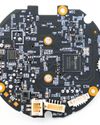
Holiday Hangover Hardware Hacking
Having too much cheer during the holidays? In this month's article, Colin offers a diversion from the jolly season by urging developers to retreat to the basement to brush up on hardware hacking skills. He shows how a low-cost Raspberry Pi Pico and a TP-Link Tapo C200 smart IP camera could become the next automated bird deterrent or a home automation server.

Datasheet: Microamps Per Megahertz Ultra-Low Power MCUs Minimize Current Consumption
How do chip makers differentiate if many ultra-low power MCUs on the market feature the same processor core? The peripherals and different power states offer various ways to manage current consumption down to microamps per megahertz.

Smart Home Lock Down Matter Provides Security Blanket
As more devices in the smart home connect to the Internet, they become increasingly vulnerable to outside attacks. Developers can now add the latest security measures to their Smart Home devices through Matter.

Basic Pulse Circuits
In part one of a three-part series, Wolfgang wrote how basic pulse circuits help digital circuits, such as embedded boards with ARM processors, deal with pulse trains or bursts of pulses from the outside. In Part 2, he dives into enabling flip-flops, timing parameters, and synchronization, design tasks needed to capture, detect, and filter pulses.
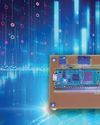
Building a Wi-Fi Router Watchdog
Dev created a watchdog for a Wi-Fi extender using a Raspberry Pi Pico. This monitors Wi-Fi connectivity for his smart home lighting system, which would require a reset twice a year due to rapid power interruptions.
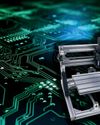
Create Your Own PCBs with a CNC Milling Machine
Using KiCad, CopperCAM, and Candle Software

Performance Bottlenecks in Embedded Linux Solutions Analysis, Identification, and Mitigation
Good performance is a requirement for every technology, and system designers rely on operating systems to ensure fast and smooth transitions in critical applications. Fortunately, Pedro writes, the embedded Linux OS offers ways for finding, analyzing and mitigating performance bottlenecks so embedded systems can deliver the speed and efficiency that end users expect.

Renesas New RA8 Entry-Line MCU Groups Brings High Performance of Arm Cortex-M85 Processor to Cost-Sensitive Applications with Market-Leading CoreMark Performance
Renesas Electronics Corp., a premier supplier of advanced semiconductor solutions, introduced the RA8E1 and RA8E2 microcontroller (MCU) groups, extending the industry's most powerful series of MCUs.